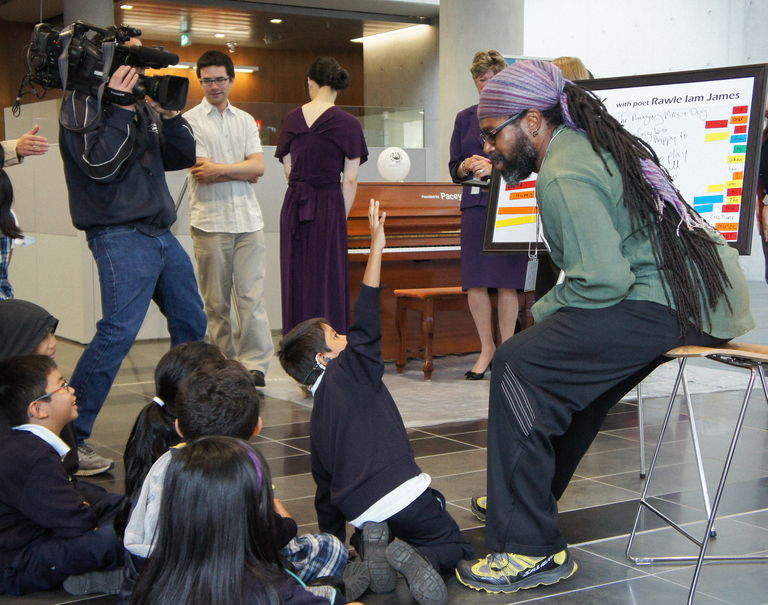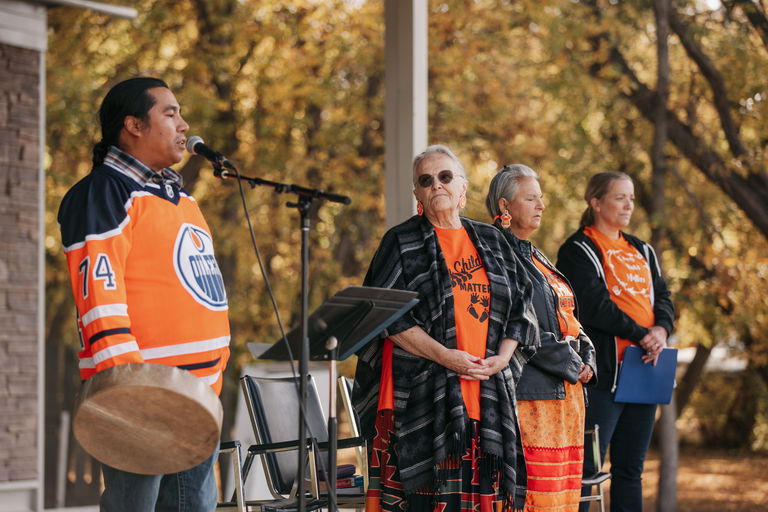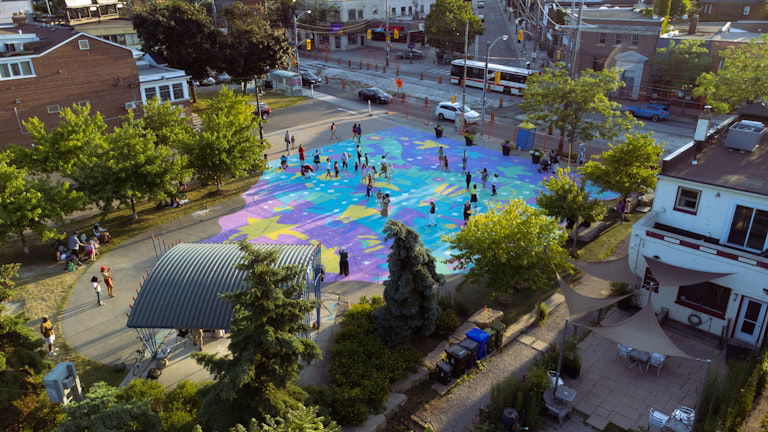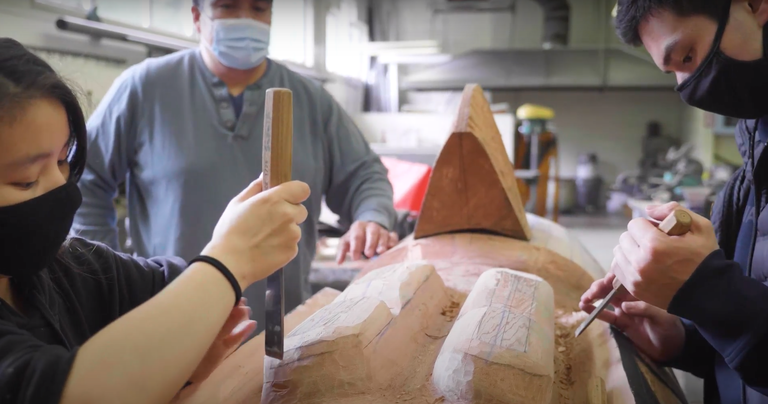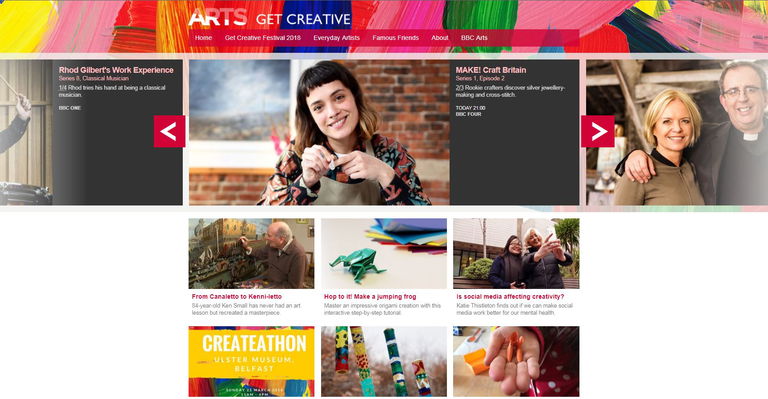
Surprising Similarities - A Discussion Between Get Creative and Culture Days
Meaghan Froh Metcalf
Aug 24, 2018

We like to think that Culture Days is a unique model for arts and culture engagement, but a remarkably similar campaign exists in the United Kingdom called Get Creative. Over the past few months, Culture Days has connected with the staff at Get Creative and had the chance to learn more about their participatory model. We were continuously surprised at the similarities between both organizations.
Entering into its third year, the Get Creative Festival aims to inspire everyday creativity and celebrate the many different kinds of art and culture happening across the United Kingdom. Taking place each spring, the festival invites the public to participate in free or low-cost cultural programming in their local communities. Any artist, club, theatre, museum or gallery is invited to coordinate programs to take place over the festival week. Similar to Culture Days, there is a huge variety of activities to try – from hand-bell ringing to knitting circles and pottery classes to comic book workshops. Sound familiar?
In June 2018, Stephen James Yeoman, one of the organizers of Get Creative UK and Editor of Digital Development and Innovation from BBC, visited the Culture Days office in Toronto and we were incredibly excited to learn from each other. The following is an interview that took place with both Stephen and Aubrey Reeves, the Executive Director of Culture Days.
How was your organization started?
Stephen James Yeoman: Get Creative was a result of the Warwick Commission on the Future of Cultural Value, organized through the University of Warwick. A study was developed to see how arts and culture organizations could work better together to benefit the sector as a whole. One of the major recommendations that came out of the study was that the BBC lead a public-facing campaign to encourage the volunteer sector to promote arts and creativity. A steering committee of cultural organizations was appointed to work with the BBC to develop a strategy. Get Creative is the result of this steering committee.
Aubrey Reeves: That is a very similar origin story to Culture Days! Since 1997, a program very similar to Culture Days has existed in Quebec called Les Journées de la culture. In 2007, the Canadian Arts SummitArtsEkta South Asian Dance PC Ulster Museum commissioned a study of Les Journées to see if it was a model that could be adopted by the rest of Canada. In 2008 and 2009, Alberta and Ontario ran pilot projects in select communities to see how adaptable the model was in these provinces. Following these test runs, The Canadian Arts Summit with founding partners, the Canada Council for the Arts, Culture pour tous and The Banff Centre, launched the first Culture Days weekend nationally in 2010 and now we will be heading in to our 10-year anniversary in 2019!
One of the keys to its success has been the real sense of togetherness created through participating in Culture Days. People from all across the country seems to really value the feeling of collectively participating in culture at the same time.
SJY: Yes, both of our organizations evolved to a very similar place. Clearly there is a need for celebrating culture and togetherness.
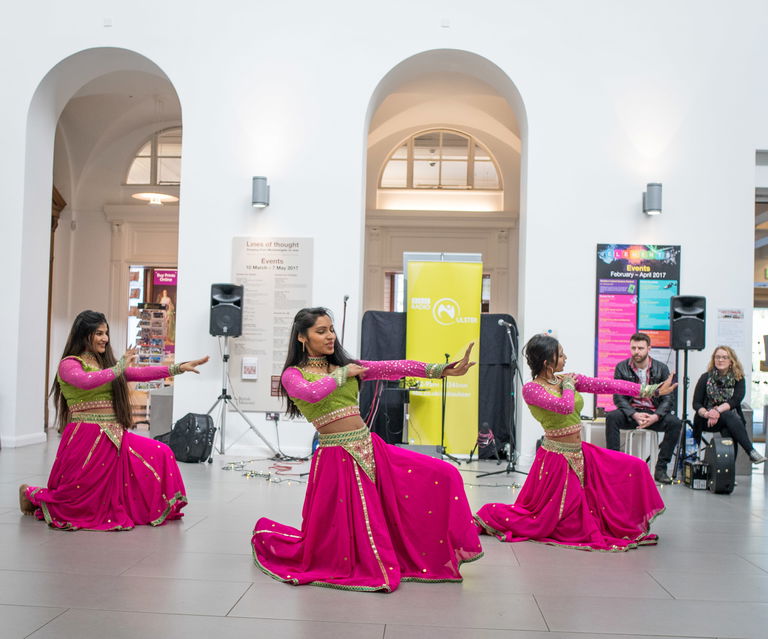
How do you encourage participation from all over the country?
AR: The decentralized leadership has been very important to the success of Culture Days. The national office helps to develop the language and direction of the campaign each year while the provinces support and encourage the organization of events in their own regions. The provincial staff work with community organizers to ensure the programs get off the ground. As each province is so different, this structure helps to ensure the needs of each area are being met. It is important for Culture Days to be adaptable to the requirements and interests of each community, so our community leads are vital in helping with that free-flow of information.
The development of these relationships took time. In the beginning, provincial leads were literally just calling different municipalities and cultural organizations to let them know about this new initiative. It is through the years that we have developed strong advocates for Culture Days who help to promote participation from arts organizations and drive public attendance.
SJY: We have a lot to learn from Culture Days because you empower municipalities to take the baton and run with it, so in that sense it feels like we are still in our start-up phase.
Having BBC as a partner helps to get the word out. BBC Wales and the Arts Council of Wales have been significant in developing awareness and participation in Wales, but we still have a lot of work to do with other areas of the United Kingdom.
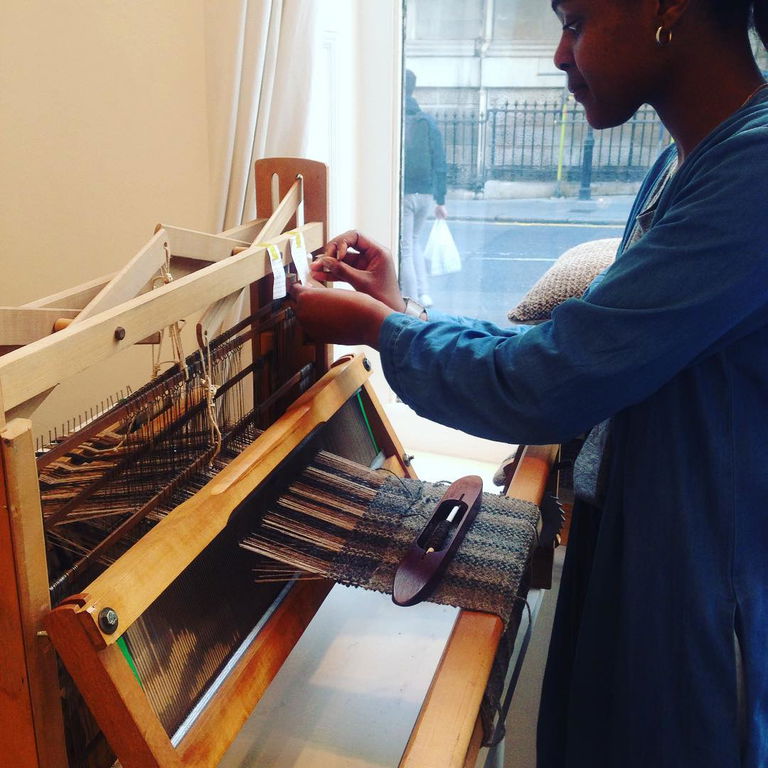
You both do independent research; can you talk about what you focus on?
AR: Culture Days has an annual survey that is open during and immediately after the Culture Days weekend led by an independent research team at Maru/Matchbox. Typically, our focus has been on program evaluation and the impacts of participating in Culture Days. Surveys are customized for attendees, event organizers, and the general public. The questions dig into awareness of the event, motivations for attending or creating a program, perceptions of Culture Days, etcetera. As Culture Days matures, we’re shifting to a broader research approach, with the aim of providing insights for the arts sector at large into the value of arts and culture engagement and participation.
SJY: This year we produced a quiz called the Great British Creativity Test. The quiz was developed together with the BBC and University College London and was inspired by the 70th anniversary of the National Health Service in the UK.
People were encouraged to fill out a survey on their own arts-based hobbies and discuss how participating in arts and culture contributes to their general wellbeing. In return, participants were able to see how their creative habits stacked up against the rest of the country.
Our goals were to better understand how wellness is affected by participating in creativity. Time and time again, surveys say that getting creative has a positive influence, but we hope the findings of this survey will help us better understand why. We haven’t crunched all the data yet, but we’re hoping the results will help us to highlight the importance of participating in arts and culture for one’s health, which will guide us when we’re thinking about how the Get Creative campaign can benefit the sector. We plan to release the results next spring so stay tuned!
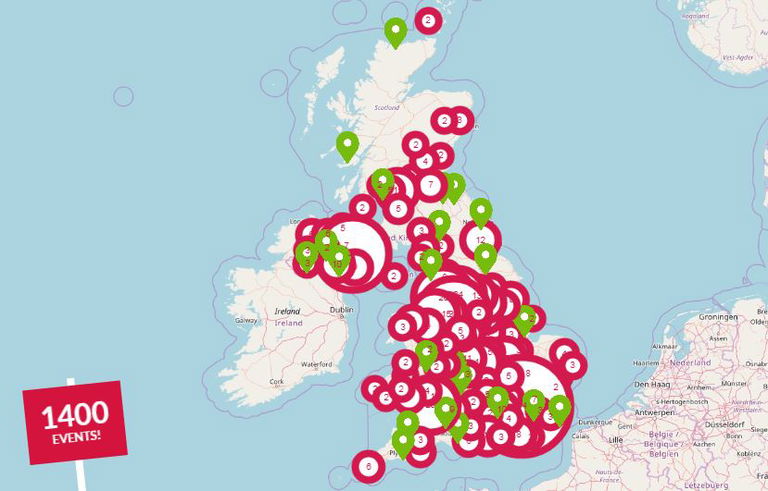
Where do you see yourself going in the future?
SJY: Our goal is to have a similar number of events as Culture Days by the time we’re nearing our own 10-year anniversary. Culture Days had 7000 events last year, so as the United Kingdom has roughly twice the population of Canada, Get Creative should be aiming to have twice as many programs by our tenth year. 1400_events PC BBC
We have a long way to go with brand awareness and recognition, both within the sector and the general population. I hope to develop more relationships with the major cultural institutions in the country. Having that buy-in from places like the National Gallery and the V&A Museum, for example, will really help to increase the awareness of the festival.
AR: Even though our general population survey showed that between 3% and 8% of Canadians attended last year, there’s still lots of Canadians who haven’t heard of Culture Days. So just like Get Creative, we are continually working to reach more people too. Someday we hope every Canadian will take part!
With so many surprising similarities between Get Creative and Culture Days, the opportunity to meet produced many valuable insights for both organizations. Our foundations are built on the shared desire of citizens to collectively celebrate arts, culture and creativity. As the organizations grow, we both hope to increase our citizens’ participation and awareness, with the goal to become the occasion to celebrate arts and culture in our respective countries.
We look forward to continuing the conversations with our friends across the pond, and learning from one another as we navigate the continued evolutions of our organizations and the ever-changing world of arts and culture.
(Quotes have been edited for clarity and length)
Photo credits (in order of appearance): BBC; Ulster Museum; Fiona Daly Textiles; BBC.
